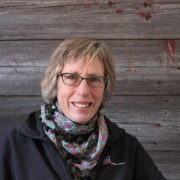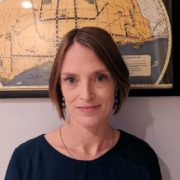Webinar

Many cities have a hard time making tough decisions about how to confront the demands of drivers for ample free or cheap parking. The most innovative approaches to parking management have improved the economic, social, and environmental quality of cities. This discussion will focus on how to balance the competing demands on street use with on-street parking trade-offs.
While municipalities across the US look for innovative and equitable ways of moving people, parking remains an issue. In collaboration with the Summit Foundation, ITDP released the Ideas for Accelerating Parking Reform in the United States, a publication which looks at parking through a campaign filter. The recommendations, based on a synthesis of perspectives from leading experts, focus on helping reform-minded leaders make progress given that local municipalities hold much of the power for parking reform.
This two-part roundtable series moderated by Martha Roskowski, lead author of the publication, will explore the intersecting opportunities and threats, strategy and tactics, decision points and trade-offs in updating parking policies.

Martha has been involved in transportation for nearly three decades. At PeopleForBikes, she championed protected bike lanes, helping cities to build them and adding them to the U.S. design toolkit. At the City of Boulder, she oversaw the launch of the local bike share system. Under her leadership, the America Bikes campaign helped create the federal Safe Routes to School program. She was recently deemed the “godmother of Complete Streets” for her role in launching the movement. Recently, she started a consulting firm to help agencies and organizations develop strategies to advance sustainable mobility and equitable access.

Hank Willson leads the Curb Management team at the San Francisco Municipal Transportation Agency, setting policy and regulations for the city’s thousands of miles of curb. Prior to that, Hank spent six years as a civil rights attorney before following his true passion for transportation planning. His team’s current major projects include: managing the Shared Spaces program that provides curb space to aid small businesses’ COVID recovery efforts; implementing the recently adopted citywide Curb Management Strategy; managing demand-responsive pricing at all 28,000 metered spaces in the city; expanding car and scooter-share programs; reforming the city’s 40-year old residential permit program; and bringing rational curb regulations to the city’s fast-growing formerly industrial neighborhoods. He has a BA from the University of Pennsylvania and a JD from Georgetown University.

As a senior planner at the Chicago Metropolitan Agency for Planning (CMAP), Lindsay Bayley focuses on equitable transportation and parking policy. In addition to her work at CMAP, Lindsay is a co-founder of the Parking Reform Network, a public benefit non-profit organization with the goal of educating the public about parking policy and assisting others with parking reform. She earned her Master of Science degree in Geographic Information Systems from the University of Redlands in 2004, after spending two years as a Municipal Development Peace Corps Volunteer in Guatemala. Her undergraduate degree is in Urban and Regional Planning from the University of Illinois at Urbana-Champaign.